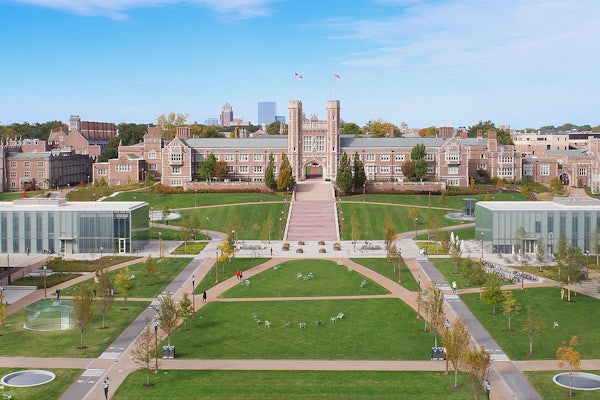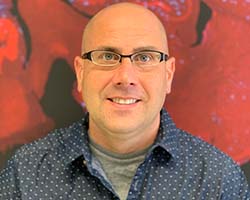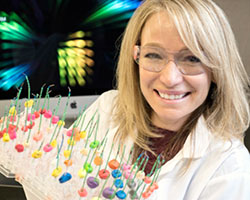Washington University in St. Louis team licenses SARS-CoV-2 detection technology to Y2X Life Sciences
Company to develop cutting-edge biosensor technologies to monitor air quality and infectious disease presence in individuals and large gathering places

A team of Washington University in St. Louis faculty has licensed a biosensor technology they developed to Y2X Life Sciences, which plans to develop and commercialize the technology that can detect aerosolized SARS-CoV-2, or COVID-19.
The Washington University team included John Cirrito, associate professor of neurology, and Carla Yuede, associate professor of psychiatry, both in the School of Medicine; and Rajan Chakrabarty, the Harold D. Jolley Career Development Associate Professor in the McKelvey School of Engineering, who leads the university’s Complex Aerosol Systems Research Laboratory. The team received a grant from the National Institutes of Health for the project through the Rapid Acceleration of Diagnostics (RADx) initiative. The core technology for the biosensor is based on research developed in Cirrito’s laboratory that is used for Alzheimer’s disease and brain metabolism research.
“We are pleased to partner with Y2X Life Sciences to bring this important technology out of the laboratory and into devices that can help save lives,” Cirrito said. “This technology was put through rigorous diligence as part of the NIH grant process and is an example of the strength of our research programs and collaboration between our schools of Medicine and of Engineering.”
“This technology is a spiral integration of recent advances in biosensing and aerosol science," Chakrabarty said.
Y2X Life Sciences plans to use the core technology for applications such as portable units to diagnose COVID-19 from an individual’s breath and from aerosol detectors that monitor indoor air quality for SARS-CoV-2 in large gathering places such as airports, conference halls, government facilities, military installations and vessels and schools.
“This technology is unique for its ability to detect very low amounts of virus, including SARS-CoV-2 and, in the future, other pathogens,” said David Shuler, president and co-founder of Y2X Life Sciences. “We are very excited to work with Washington University to expedite development of this core technology and in collaboration with our partners, initiate testing to secure regulatory approvals, and fulfill Y2X Life Science’s mission of providing safe environments.”






